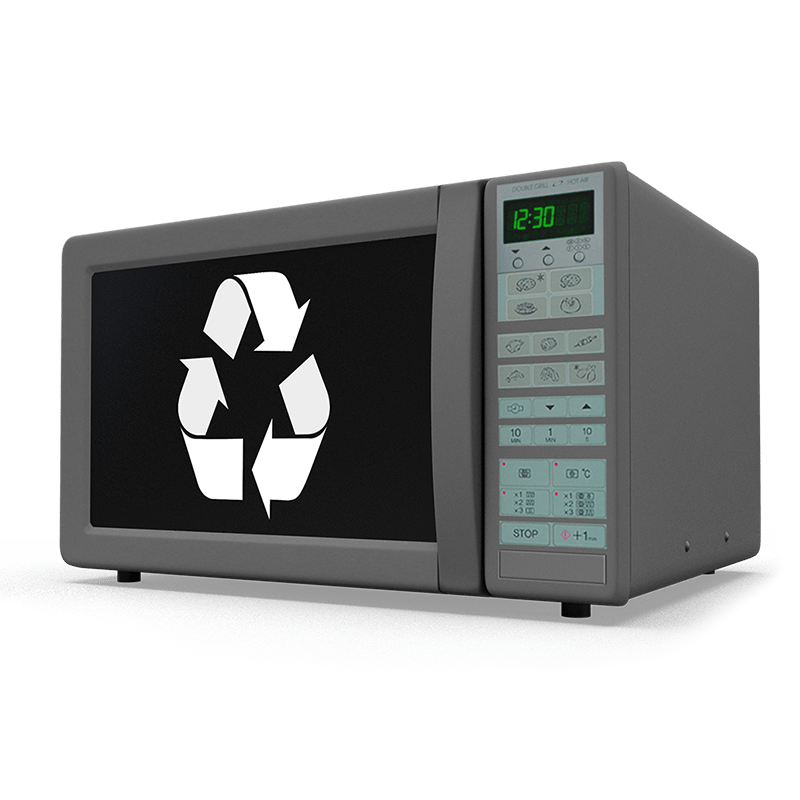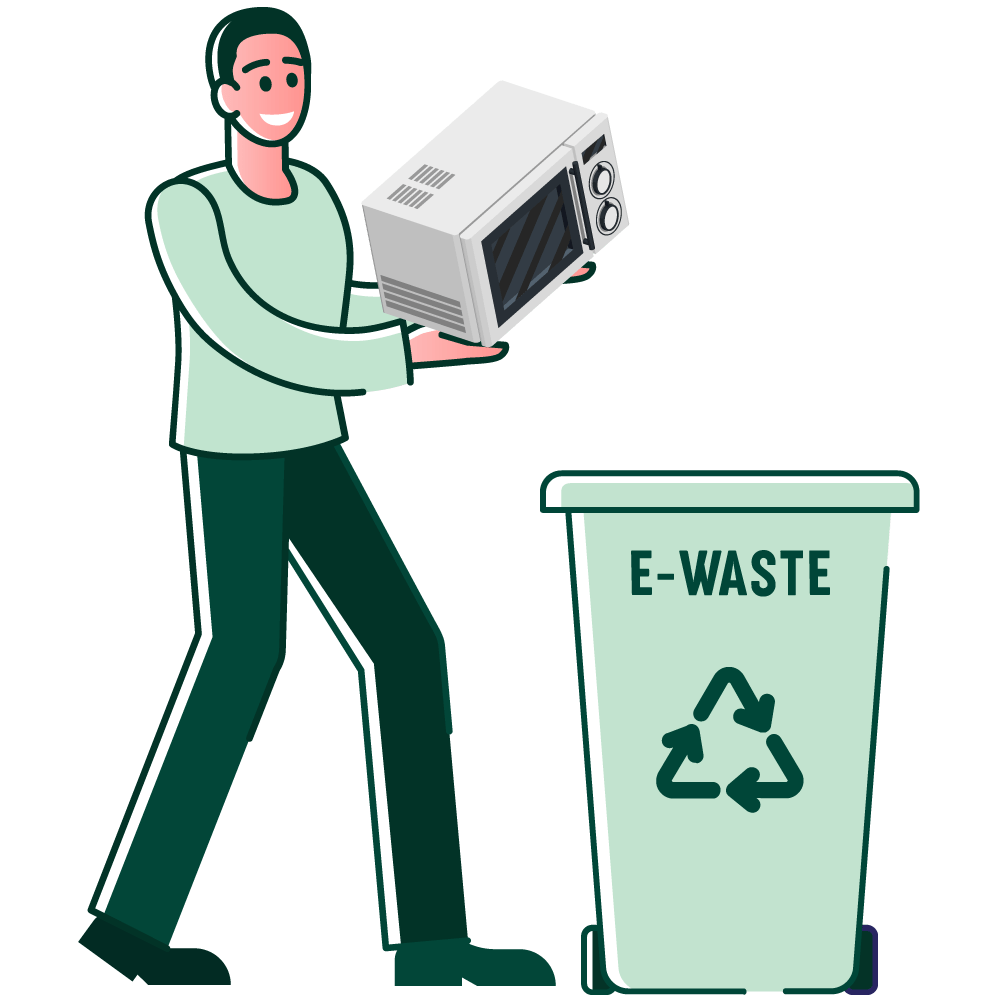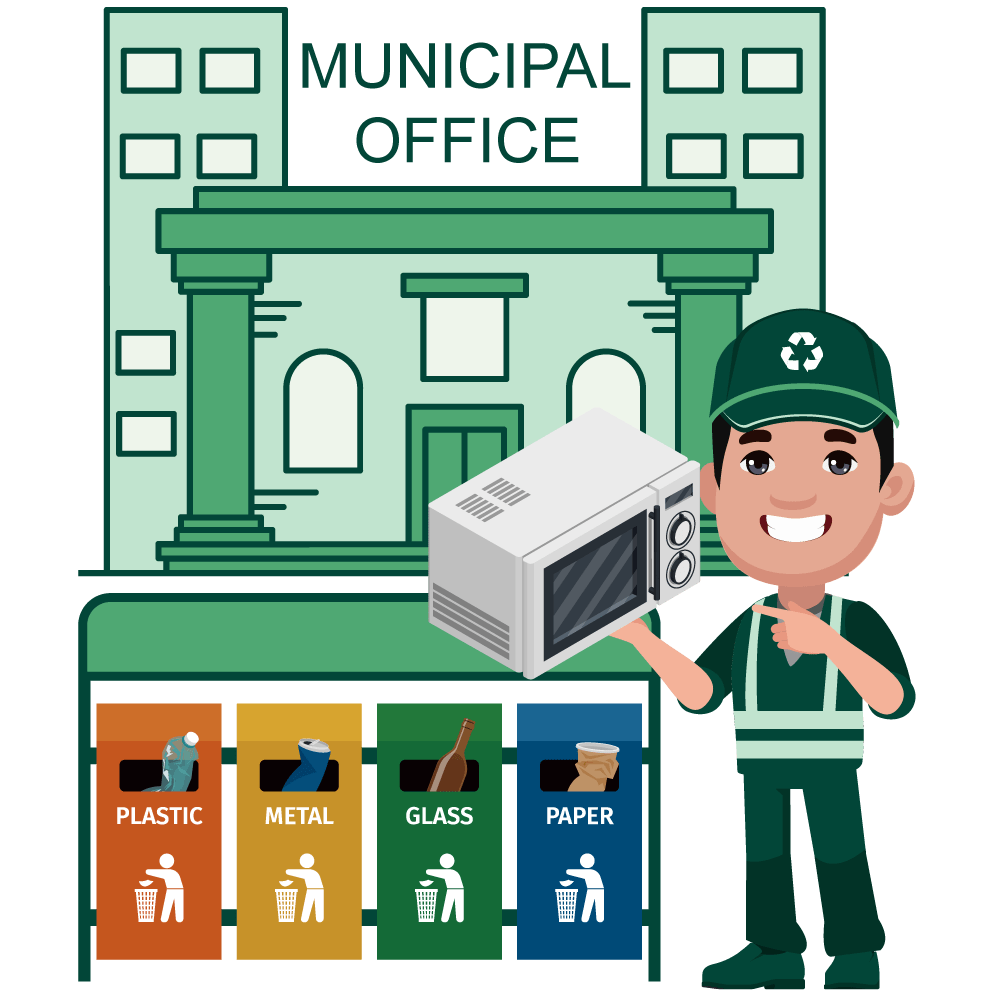How To Recycle Microwaves?
There’s probably not a household in America that doesn't have a microwave, and because these appliances are relatively small, people often get rid of them with their regular trash. That, unfortunately, means that many of them end up in a landfill where they can do much damage.
Let’s show you why microwave recycling is such an important thing to consider for your old appliance.

Why Should You Recycle Microwaves?
The main reason you should consider recycling a microwave is that these appliances contain a lot of materials that can be used again for making new electronics and appliances.
There’s everything from different metals like steel and copper to plastics and printed circuit boards with silicon. There are also specialized pieces of equipment that generate and direct microwaves, like a magnetron, transformer, and waveguide.
Here are some important reasons why recycling these appliances should be your only choice.
Extract valuable materials - Most microwaves contain a mix of steel and aluminum that are ideal resources for the cycle economy.
Reduce raw material demand - With less demand for newly mined metals, there is less impact from devastating mining operations.
Energy savings - Recycling plastic and metals is less energy intensive than having to make things from raw materials.
Lower demand for landfill space - Too many home appliances and electrical goods just end up in the trash and at landfill sites, even though it’s so easy to properly deal with them.
What Parts/Materials Can You Retrieve From Microwaves?
We don’t suggest that you try to break down a microwave into its parts, but if you did do that, then you’d find a lot of the parts and components are made of different types of metal. The outer housing is often just steel, while the inner parts can often be aluminum.
Then there can be plastic parts like the buttons and time selectors before you even start looking at the parts that create and direct the microwaves.
You can find all types of metals here, including copper for the wiring and specialized rare earth metals for magnets. And there will likely be some glass as well used for the turntable inside.
All of these materials can be safely extracted to then reused in new electronic devices and home appliances.
How to Recycle Microwaves?
Here are the five main options you should consider for your old microwave.

E-Waste Recyclers
If your microwave is faulty or simply too old to still be safely used, then the best option for dealing with it is to bring it to an e-waste recycling company. These registered and certified firms have the equipment and expertise to deal with all the internal components and break them down into their raw materials.

Municipal Waste Management
When you do a Google search for “microwave recycling near me,” you’ll find that some municipal waste sites will accept electronic and household appliances. Just make sure you call them before paying them a visit to make sure they have a drop-off point.

Manufacturer Take-Back Programs
Another great option to consider is checking if the manufacturer or store you bought it will take it back for recycling. If you’re going to buy a new one in a local electronics store, then call them before you head there to see if they run such a recycling program.

Donation
If your microwave is still in working order and you’re simply buying a bigger or better model, then check with some local charities if they will accept an old microwave. Many of these charities rely on donations like this for revenue, and they often sell them at low prices to people who need them.

Selling
Another option you have is to simply advertise your microwave for sale on Craigslist, or a local community buy-and-sell page. If it’s in good working order and still looks perfectly fine, then you could turn it into cash to buy a new or better model.
Where to Recycle Microwaves?
Now let’s talk about what your best options are for recycling that old microwave that will otherwise just gather dust in a basement.
Drop-off Recycling (For Individuals in the San Francisco Bay Area)
If you’re based in the San Francisco Bay Area, then the easiest option you have is to simply fill out a form and then drop your microwave off at the Green Citizen recycling center. The process is very easy, and all you need to do is weigh your old appliance and pay a small processing fee when you arrive at our Burlingame office.
Business Recycling Pickup (For Businesses in the San Francisco Bay Area)
Green Citizen also offers a pick-up service for companies that have multiple old electronic and electrical devices they need to recycle properly. Simply list out the items you want us to collect and pay the fee conveniently online. We will then make arrangements to collect your recycling at a convenient time for you.
Mail-in Recycling (US-Wide Service)
If you don’t live close enough to our office and there are no convenient options near where you live, then we would recommend using the GreenCitizen mail-in recycling service. Simply provide us with the details of the items you want to send, pay the small fee, and then use your favorite delivery service to send them to us.
Green Directory (US-Wide Service)
And finally, you can use our Green Directory to search for registered and certified recycling companies near you. Simply enter your zip code and the type of device you want to recycle, and you’ll receive a list of companies you can contact.
DISCLOSURE *: GreenCitizen is passionate about making every day Earth Day for the people and businesses we serve. We introduce only those green products and services that we believe can help our customers reduce waste and environmental damage. We participate in Amazon Associates and other affiliate programs that earn us fees when site visitors follow certain links. We’re committed to using all such revenues to increase our efforts toward making every day Earth Day.

